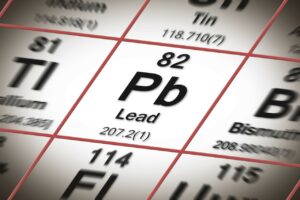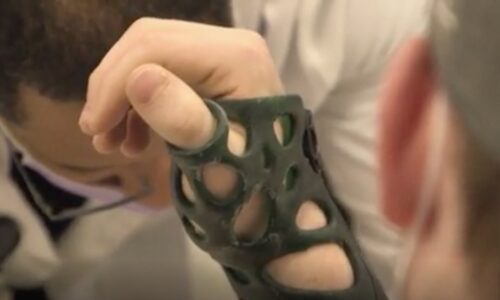How can I avoid lead poisoning? |

There has been significant press coverage recently regarding lead poisoning. I thought this might be an interesting topic for our Health Tip this week.
What is lead poisoning?
Lead poisoning is the result of lead build up in the body. Once lead is taken into the body, it distributes throughout the body. It can damage the nervous system, kidney function, immune system, reproductive systems, and the heart and blood vessels. Lead is stored in your bones, and can be released along with calcium during pregnancy, leading to exposure of the unborn fetus to lead.
Infants and young children are especially sensitive to lead, even at very low levels, which can cause severe and long lasting effects on both physical and mental development. It can contribute to serious behavioral problems, learning deficits, lowered IQ, slowed growth, hearing problems, anemia, and even death.
How do people get exposed to lead?
- Lead-based paint – Any house that was built prior to 1978 is very likely to contain some lead-based paint.
- Water – Public water supplies are sometimes contaminated. Lead is also the most prevalent toxicant in U.S. school drinking water. Lead release from plumbing is the main source of lead in water at schools.
- Air – This decreased after lead was removed from gas, but there are still sources that contaminate air.
Who is at risk for lead poisoning?
- Age less than 6 years.
- Anyone living in an older home, and/or remodeling an older home.
- Having a hobby like making stained glass or refinishing old furniture.
- Living in developing countries where the rules are much less strict about exposure to lead.
What can you do to protect your family from lead poisoning?
- If your home was built before 1978, check regularly for peeling paint, and fix problems promptly. Try not to sand the paint, as this can generate dust which contains lead and can get everywhere. If you are remodeling an older home, wear a mask and keep children well away from any area being renovated.
- If you have older plumbing containing lead pipes or fittings, you can find effective and affordable water filters which are specifically designed to remove lead. Make sure the particular filter you purchase is designed to remove lead (pitcher filters usually are not). Use filtered water for drinking and cooking.
- Eat a healthy diet. A diet with enough calcium, vitamin C, and iron can help lower lead absorption.
- Talk with your doctor about when lead testing might be recommended for your child.
- Find out if the water at your child’s school has been tested for lead. If not, consider sending a water bottle with your filtered water to school with them.
You can find more information at https://www.cdc.gov/nceh/lead/publications/books/plpyc/contents.htm.
If you have any more questions just Ask Hanna, our health advisors are here to help.
Dr. Anita Bennett MD – Health Tip Content Editor
Image: ©Shutterstock / Francesco Scatena








